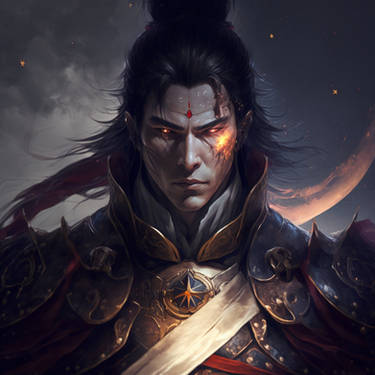Genre Spotlight 1: Wuxia
Wuxia can be considered a subgenre of fantasy. Literally translated from Chinese as “martial arts and chivalry”, these tales depict action-packed epics of martial artists facing extreme moral dilemmas, powerful adversaries, and combat that pushes the limits of human ability.
Characteristics
Kung Fu and Daoism are the highest running themes in wuxia, as heroes are bound to a system of extreme discipline to refine their martial arts ability. Whether they involve fists or swords, staves or hidden weapons, each fight and each display of power is bound to feature lightning-fast moves and jaw-dropping acrobatics.
The main character often starts out as a normal person who discovers or is imparted a life-changing martial arts technique or manual and sets off on a journey of self-cultivation. Their allies, adversaries, idols, and rivals are often all martial artists with a hand-tailored backstory for their devotion to their practice.
Jianghu, translated literally as “rivers and lakes”, is a persevering concept in wuxia that can be roughly summed up as the common “land of the survival of the fittest”. The jianghu of a story is a land not governed by any martial arts sect or imperial edicts where the powerful feast and the weak cower under the defenses of the compassionate strong. It is here where one’s moral conduct is truly proven, since anything goes so long as you have the power to be arrogant.
Confucianism can be seen throughout wuxia texts as a major characteristic. Heroic ideals are a mainstay feature of these stories as martial artists discuss the purpose of power and who deserves their protection.
Human ambition can be seen as both a stumbling block and something worthy of admiration, as power often stretches not only from one’s physical prowess but also prestige, community, and wealth. Human ambition to achieve any one of these things can lead to one’s demise or conquering triumph. Conflicting ambitions can spark the start of wars between martial arts sects. They may also lead to demonization, either through the condemnation of one’s peers or a literal transformation into a devil as one’s ambition turns into obsession.
Since wuxia is based heavily on philosophy and ideals, it has the most fun with moral dilemmas. How else can one’s ideals be proved right without the thrill of swordplay and the cathartic release of debate? Heroes of wuxia are often presented with impossible situations to prove whether they were right or wrong all along.
A classic tale is of hidden dragons and tigers in jianghu, pretending to be a pig only to eat a tiger. Mysterious, nameless masters of martial arts often trek the world of wuxia for reasons unknown. Many times, they only reveal themselves when their moral code is challenged and finally decide to join in the waning battle to turn the tides.
Origins and Influences
Wuxia stems from Chinese storytelling, a rich tradition that has endured the ages through both mouth and ink. Tales about chivalry and legendary martial artists have existed even before the term “wuxia” was coined.
Wuxia as a genre came in during the late Qing Dynasty (1644-1912). The rise of vernacular novels during this period provided a platform for wuxia stories to flourish.
Much of wuxia’s running themes can be seen in major Chinese philosophies such as the Confucian ideals of heroes and the self-disciplined nature of Daoism. Modern wuxia novels might incorporate social commentary or delve deeper into the psychological aspects of its characters.
Notable Writings
Water Margin, written sometime in the mid-14th century by Shi Nai’an.
Crouching Tiger, Hidden Dragon, written sometime in the 1940s by Wang Dulu.Fox Volant of the Snowy Mountain, published in 1959 and written by Jin Yong.

Wuxia and Xianxia are definitely my favorite genres. I love a lot of fantasy, but the general systems and explorations of these settings are the best to me. Maybe it’s because I grew up on ATLA, which is basically a soft xuanhuan.